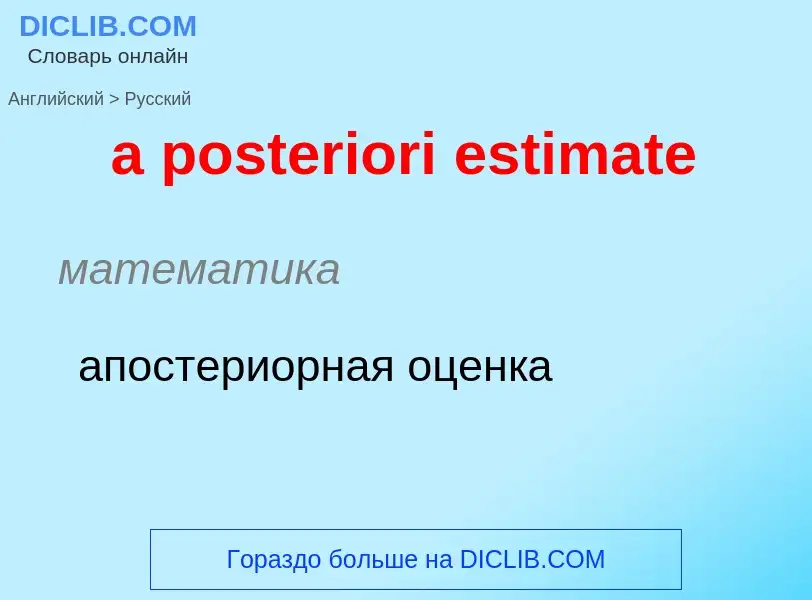Traducción y análisis de palabras por inteligencia artificial ChatGPT
En esta página puede obtener un análisis detallado de una palabra o frase, producido utilizando la mejor tecnología de inteligencia artificial hasta la fecha:
- cómo se usa la palabra
- frecuencia de uso
- se utiliza con más frecuencia en el habla oral o escrita
- opciones de traducción
- ejemplos de uso (varias frases con traducción)
- etimología
a posteriori estimate - traducción al ruso
математика
апостериорная оценка
a posteriori
Definición
Wikipedia
The empirical probability, relative frequency, or experimental probability of an event is the ratio of the number of outcomes in which a specified event occurs to the total number of trials, not in a theoretical sample space but in an actual experiment. More generally, empirical probability estimates probabilities from experience and observation.
Given an event A in a sample space, the relative frequency of A is the ratio m/n, m being the number of outcomes in which the event A occurs, and n being the total number of outcomes of the experiment.
In statistical terms, the empirical probability is an estimate or estimator of a probability. In simple cases, where the result of a trial only determines whether or not the specified event has occurred, modelling using a binomial distribution might be appropriate and then the empirical estimate is the maximum likelihood estimate. It is the Bayesian estimate for the same case if certain assumptions are made for the prior distribution of the probability. If a trial yields more information, the empirical probability can be improved on by adopting further assumptions in the form of a statistical model: if such a model is fitted, it can be used to derive an estimate of the probability of the specified event

 a 309.jpg?width=200)
